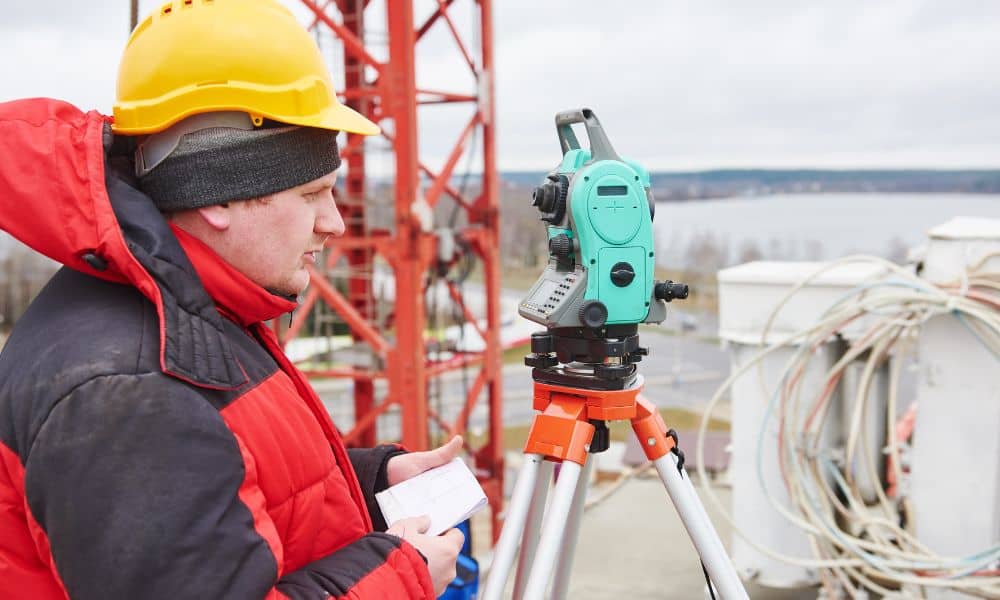
Chicago’s Red Line Extension made headlines earlier this month—and not for the right reasons. Around $2 billion in federal transit funding remains on hold after a White House spending freeze, creating uncertainty for contractors, developers, and surveyors across the city. At first glance, this sounds like a transportation issue. But if you’re an engineer, title officer, or anyone waiting on an ALTA Title Survey, this pause hits closer to home. When big projects stop moving, the survey world feels it first.
Why ALTA Title Surveys Matter More Than Ever
An ALTA Title Survey is more than a boundary map—it’s the backbone of every commercial land deal in Chicago. It shows where improvements, easements, and encroachments sit on a property so lenders and title companies can verify its true condition before closing.
When a developer buys or refinances land, lenders often require this survey to ensure everything lines up legally and financially. If the ALTA survey isn’t current, closings stall. If funding pauses, surveyors can’t finish updates or verify right-of-way changes. That’s why even a short freeze can ripple through every part of a project.
When Funding Stops, Surveying Slows Down
The Red Line Extension delay is a textbook example. Once funding pauses, every step that depends on it—engineering, mapping, permitting—pauses too.
Here’s what happens next:
- Right-of-Way plats and as-builts sit waiting for release.
- Utility markouts and topographic updates are postponed.
- Surveyors must hold field crews and instruments in standby, sometimes for weeks.
Even private developers can feel the squeeze. City staff working on permits and utility coordination are often the same people managing public projects. When a major infrastructure job goes idle, response times for private work slow down too.
The Real-World Impact on Survey Timelines
Imagine you ordered an ALTA Title Survey for a mixed-use site near one of the affected corridors. The field team collects boundary data, ties to control, and drafts the base map—then the client’s funding link pauses.
Within a few weeks, benchmarks drift, monuments get disturbed, and control points need rechecking. If that delay stretches to months, the survey can expire for lender purposes. The crew may have to re-survey key areas just to update certifications, wasting both time and budget.
That’s the hidden cost of a funding freeze: even when nothing seems to happen on site, survey accuracy ages—and updating it later always costs more.
How This Affects Closings and Construction
Chicago’s lenders, title firms, and developers run on tight deadlines. Most closings require a current ALTA Title Survey dated within 90 days. If that clock runs out while funding is paused, you’re forced to order a refresh.
That means:
- Paying for additional fieldwork or new certifications.
- Coordinating again with title examiners and underwriters.
- Revising drawings and legal descriptions that were once ready to go.
Every one of those steps eats into profit margins and extends the delivery calendar. It’s not just an inconvenience—it’s a scheduling and financial risk.
What Smart Teams Are Doing Right Now

Seasoned surveyors and developers aren’t sitting idle—they’re staying “survey-ready.” If your project is caught in the slowdown, you can still prepare:
- Pre-file right-of-way permits so approvals are ready when funding returns.
- Check your control networks and local benchmarks for stability.
- Organize field notes, title exceptions, and Table A items (like utilities, flood zones, or access points) ahead of time.
- Stay in touch with your lender and title company to keep them informed about expected updates.
These small moves help you save weeks once the budget reopens.
Lessons for Private Developers
You don’t have to be part of a federal project to feel the ripple. When the city’s biggest public works pause, smaller developments often line up behind the same permitting desks.
Private builders who schedule surveys too close to closing dates are the ones who suffer most. The smarter approach is to treat survey scheduling like insurance—something you build into every project plan. A ready, updated ALTA Title Survey means fewer surprises when funding resumes or when your deal hits the finish line.
Why Surveyors Deserve a Seat at the Table
This month’s events prove one thing: surveying isn’t background work—it’s mission-critical. Without updated plats, engineers can’t stake structures. Without ALTA surveys, title companies can’t insure transactions. And without surveyors in the loop, project teams risk building on outdated or incomplete data.
In every development meeting, survey timelines should carry the same weight as design or financing updates. The Red Line pause is a reminder that progress depends on current, certified measurements—and that’s exactly what surveyors deliver.
Protecting Your ALTA Timeline Before It’s Too Late
If your project depends on an ALTA Title Survey, take proactive steps now:
- Ask your surveyor if your data is still current or needs minor rechecks.
- Confirm with your title company how long your existing survey will stay valid for closing.
- Schedule a short update survey if your project extends beyond 90 days.
- Budget for re-verification now, instead of being surprised later.
By doing this before the freeze lifts, you’ll be ready to move when approvals resume.
The Bigger Picture: Chicago Will Keep Building
Funding freezes come and go, but Chicago’s infrastructure ambitions don’t. When the Red Line Extension and other projects restart, survey crews will be among the first back in the field. The city will keep growing—and so will the need for precise, up-to-date surveys.
If you use the next few weeks to double-check your plans and keep your ALTA Title Survey ready, you won’t lose momentum when everyone else is scrambling to catch up.